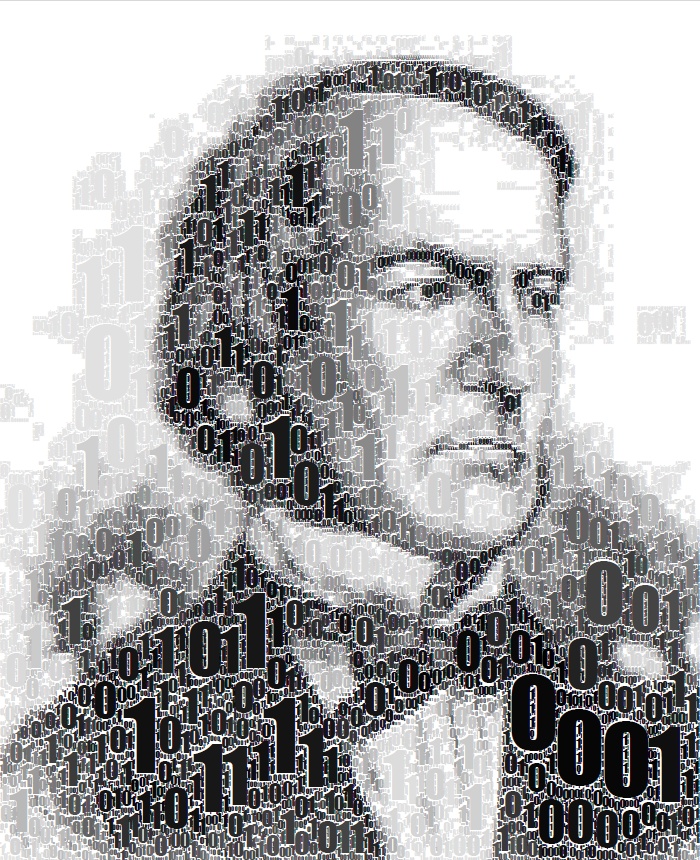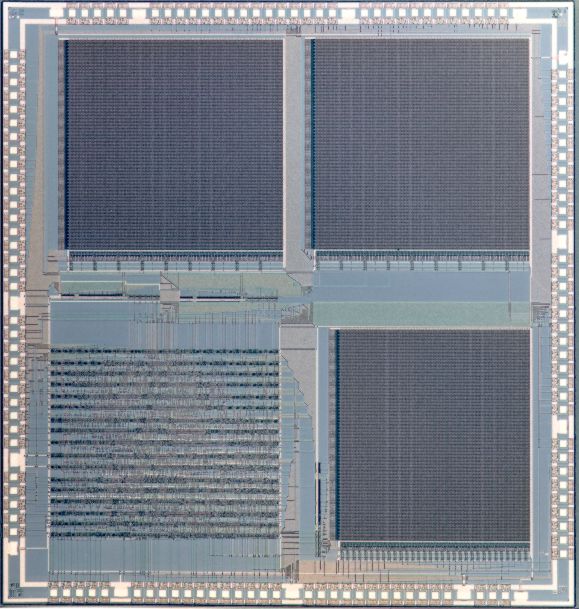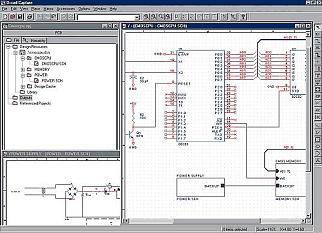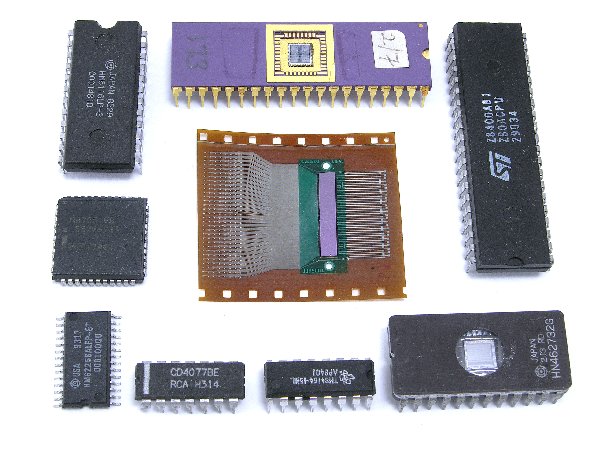Difference between revisions of "CSC270 Class Page 2009"
(→Integrated Circuit Data-Sheets) |
(→Weekly Schedule) |
||
| Line 84: | Line 84: | ||
** decoders | ** decoders | ||
** The [http://cs.smith.edu/~thiebaut/classes/270/datasheets/sn74ls42rev5.pdf 74LS42] decoder | ** The [http://cs.smith.edu/~thiebaut/classes/270/datasheets/sn74ls42rev5.pdf 74LS42] decoder | ||
| + | ** Animated [http://tams-www.informatik.uni-hamburg.de/applets/hades/webdemos/10-gates/40-mux-demux/demo74154.html 74154] decode (Java applet--cool!) | ||
** multiplexers | ** multiplexers | ||
---- | ---- | ||
| Line 89: | Line 90: | ||
* | * | ||
|| | || | ||
| − | * | + | * Medium scale integration |
| + | * The decoder | ||
| + | * The multiplexer | ||
| + | * Simplifying circuits with decoders or multiplexers | ||
Revision as of 08:17, 9 February 2009
Back to Main Page for CSC270
Contents
Prof and TA
|
Dominique Thiébaut email |
The TA for the class is Lei Lei, and her hours and location are available here
Weekly Schedule
| Week | Topics | Reading |
| Week 1 1/26 |
|
|
| Week 2 2/2 |
|
|
| Week 3 2/9 |
|
|
| Week 4 2/16 |
|
|
| Week 5 2/23 |
|
|
| Week 6 3/2 |
|
|
| Week 7 3/9 |
|
|
| Week 8 3/16 |
SPRING BREAK |
|
| Week 9 3/23 |
|
|
| Week 10 3/30 |
|
|
| Week 11 4/6 |
|
|
| Week 12 4/13 |
|
|
| Week 13 4/20 |
|
|
| Week 14 4/27 |
|
|
Back To Main Page
Links and Resources
Programs
- A Python program that generates a truth table.
Software
PSpice 9
- Pspice 9, Student version. An nice alternative to drawing schematics by hand.
- This is a Windows version. (I have tried to make it work under wine/Mac OS X but haven't been able to make it load the libraries correctly)
- Make sure you select the schematics option when installing the software.
- Select Tools/Schematics when starting the editor
- The schematics editor is located in C:\Program Files\OrCAD_Demo\PSpice\PDesign.exe upon installation.
- Download here!
- PSpice Tutorial
Integrated Circuit Data-Sheets
- Java Applets demonstrating most logical gates
- Texas Instruments and Harris Semiconductors' Data Sheet Search Engine
- Fairchild Semiconductors' Data Sheet Search Engine
- 74LS00, 74LS01, 74LS02, 74LS03, 74LS04, 74LS05, 74LS08, 74LS09, 74LS10, 74LS12, 74LS13, 74LS15, 74LS20, 74LS21, 74LS22, 74LS26, 74LS27, 74LS28, 74LS30, 74LS32, 74LS33, 74LS37, 74LS38, 74LS40, 74LS42, 74LS47, 74LS48, 74LS51, 74LS54, 74LS55, 74LS74, 74LS75, 74LS76, 74LS83, 74LS85, 74LS86, 74LS90, 74LS95, 74LS138, 74HCT240, 74LS243, 74HCT244, 74LS259, 74HCT541
Motorola 68HC11 Documentation
- Good source of info on the 6811.
- 6811 FAQs.
- The official Motorola | 68HC11A8 Data Sheet. Fairly cryptic...
- A Motorola 6811 Manual. It is a nicely written refresher on many concepts of assembly language applied to the 6811.
- Check Section 3.2 on addressing modes (inherent, direct, extended, indexed, relative).
- Get a refresher for the different instruction types (arithmetic, shifts, control, etc) in Section 3.4.
- The condition code register is covered in Section 3.5.
- M68HC11 Technical Reference, Motorola
- Section 6.5 shows the instructions in logical groups.
- M68HC11 Pocket Reference.
- Very useful, on Page 15, a list of all the opcodes supported by the 6811, in numerical (hex) order.
- 68HC11A8 Technical Reference: a hardware and engineering description. of the 6811, its ports, and how it operates.
- See Section 10 for a cycle-by-cycle description of the execution of each instruction.
- See Appendix A, Figure A-14 for the timing diagram of a typical (multiplexed expansion) memory access.
Back To Main Page




